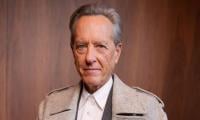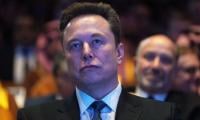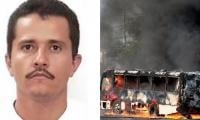Trump versus Khan
Legal eye
The writer is a lawyer based in
Islamabad.
The exchange between Donald Trump and the parents of US Captain Humayun Khan (who was killed during combat in Iraq in 2004) last week sharpened the contrast between the candidates in the US presidential election, their supporters and the kind of country they wish for.
Writing about it, fellow columnist (and the best we have), Ayaz Amir observed that, “As the father of a fallen soldier Khizr’s pain is understandable. But I find it difficult to understand his anger against the Republican presidential nominee. Trump had nothing to do with the Iraq war.”
But Mr Amir ‘mixed up the issue’ it seems. Khan’s speech wasn’t about the Iraq war, its legitimacy or desirability, nor did Trump’s mindboggling reaction make it about the Iraq war. Khan’s speech was about reiterating the right of every US citizen to equality and dignity, as enshrined in the US constitution, and how Trump’s bigotry is destroying those principles. His speech became the highlight of the Democratic National Convention and Trump’s jibe at the anguished Ghazala Khan in response exposed his callousness to the public.
Khan wasn’t blaming the US for the death of his son. His son made a deliberate choice to join the military. Militaries are in the business of fighting wars. And when they go about this business, soldiers lose lives in the line of duty. When called upon to perform his duty, it isn’t for a soldier to ask whether the war is the right policy choice. Nor is the sacrifice any less significant if history rules that the war in question was a bad idea. Martyrs are celebrated universally as they deliberately render the ultimate sacrifice in the service of their countries.
Pakistan has fought many wars and we can contest whether they were products of sensible policy or not. Kargil was a terrible idea, for example. But that doesn’t diminish the sacrifice of soldiers who laid their lives on that mountain in the name of defending Pakistan or pursuing its interests. If we begin supporting a narrative articulated by a leader vying for the top job that only Punjabi Sunnis are true patriots and full citizens, how would Pakistanis of other faiths and ethnicities feel, especially whose kith and kin have laid their lives for Pakistan?
The Khans aren’t angry at the US for starting a war many find reprehensible. They are angry for they find their son’s sacrifice as an American being dishonoured each time Trump insinuates that all Muslims are terrorists and all immigrants rotten. It was in his capacity as an American Muslim-immigrant wearing the badge of honour as a Gold Star parent that Khan questioned the xenophobia and bigotry being drummed up by Trump. That Khan’s Muslim-immigrant son gave his life for the US, fighting radical Islamists in whose name Trump is unleashing fear and hate against others such as the Khans, is what made his message so stark.
The emerging debate in this US presidential election is relevant for Pakistani-Americans and immigrants across the world. Khizr Khan of Pakistani origin calling out Trump’s racism might give pause to the exploding bigotry and hate against Pakistani and Muslim immigrant communities. He spoke to Trump as no Pakistani leader could. And his message resonated with Americans precisely because with his foreign accent, brown skin and Gold Star status, he was puncturing the lie that the world can be perceived in the simplistic good-vs-evil, us-vs-them terms that Trump is presenting it.
When Tip O’Neill argued in 1935 that, “all politics is local”, he was right. But in 2016, politics is local and global simultaneously. In our age of information and technology, leaders are always speaking to a global audience. When Justin Trudeau speaks of equality and inclusion, the hope that he cultivates has an uplifting impact across the globe. And when people like Trump use the bully pulpit to spread divisive rhetoric comprising hate and intolerance for partisan purposes that too shapes debates and attitudes around the world.
We saw the contemporary world defined and divided by ideology: capitalism versus communism. With the end of the Soviet Union the age of ideological politics began to die. What emerged at the same time was the age of information and technology, which blurred the lines drawn by national borders. Today the primary threat to nation-states isn’t from nation-states but from non-state actors. And a world trained to perceive and respond to threats and violence from a nation-state lens is struggling to understand and respond to this new threat.
In this new world where national borders are becoming extremely porous if not irrelevant, cultural walls separating communities within states are coming down, and ideas of hope as well as hate are freely flowing across territorial boundaries, identities based on nationality, ethnicity or faith are no longer convenient proxies to define friends and foes. The challenges confronting this complex new world are also complex, and ancient means of control such shutting gates, building walls or segregating suspect communities are not workable.
Change takes people out of their comfort zone and always courts resistance. But it is the pace of change around us that is provoking fear that our societies, culture, and the world as we know it are falling apart. This is generating panic in the East and West alike. Then there are no grand theories or narratives that address the current state of anxiety or identify for people the basic contradiction in today’s world, which if resolved would lead to peaceful coexistence in a diverse world and a better future. In this state of confusion and fear, many are falling back on intolerance, bigotry and isolationism as a defense mechanism.
We have seen Muslim youth being attracted to radical ideas whether propagated by sub-national groups or transnational terror groups such Al-Qaeda and Isis. We have seen ultra-nationalists growing in strength across Europe. We just saw a bitter and divisive Brexit campaign in the UK. And we are now witnessing the horrifying Trump phenomenon in the US. In this age of extremism we have seen an expansion of intolerance, prejudice and ignorance and a contraction of equity, decency and the ability to appreciate complexity.
It is not that expanding the boundaries of human rights at any time in human history has come easily or without a fight. Whether it was the US civil rights movement, the feminist movement or the struggle for empowerment and democracy in developing countries, the promise of equality and liberty has never been fulfilled without a struggle. What is worrying about the last decade and a half is that forces of regression have gained strength, and merchants of fear and hate branded as change agents are attracting those unhappy with the status quo.
Donald Trump is both a product and a beneficiary of such regression. It is comforting to be presented with a world that is black and white as opposed to being consumed by trying to decipher the grey. It is momentarily empowering to be told that being cruel and nasty towards those you dislike is okay or that spewing out your vilest thoughts and biases is the new definition of being candid and honest. It is soothing to be told that it is possible to halt the march of time, undo ‘problems’ such as globaliaation and mixing of races and restore life to how you remember it to be from your happiest childhood days.
Khizr Khan, his powerful words highlighting principles of equality and freedom, and the story of his immigrant-Muslim-martyr son laying his life in the US war on terror, flashed before Americans the complex reality of this world that Trump can neither understand nor account for. And while exposing the falsity of Trump’s make-belief world and the solutions he proposes to make ‘America great again’, Khan subtly drove home the message that the main fault-line in the world today isn’t between Islam and the West but between ignorance and civilisation.
Email: sattar@post.harvard.edu
-
 Kate Middleton May Break Because Of Andrew Mountbatten-Windsor & Expert Speaks Out
Kate Middleton May Break Because Of Andrew Mountbatten-Windsor & Expert Speaks Out -
 Tom Cruise, Nicole Kidman Mend Their Relationship Following The Murder Of Rob Reiner, Wife Michelle Reiner?
Tom Cruise, Nicole Kidman Mend Their Relationship Following The Murder Of Rob Reiner, Wife Michelle Reiner? -
 Celebrities Who Struggle With Infertility
Celebrities Who Struggle With Infertility -
 Is Social Media Addiction Real? Experts Explain Signs And How To Cut Back
Is Social Media Addiction Real? Experts Explain Signs And How To Cut Back -
 Can App Stores Really Keep Kids Off Social Media? Here’s What Experts Says
Can App Stores Really Keep Kids Off Social Media? Here’s What Experts Says -
 Margot Robbie Fears Being Dubbed A 'dumb Blonde' Due To Major Reasons: 'Hates The Idea'
Margot Robbie Fears Being Dubbed A 'dumb Blonde' Due To Major Reasons: 'Hates The Idea' -
 How Kate Middleton's Hyperemesis Gravidarum Left Her 'not The Happiest'
How Kate Middleton's Hyperemesis Gravidarum Left Her 'not The Happiest' -
 USA Beats Canada For First Olympic Hockey Gold In 46 Years; Donald Trump, Barack Obama & Others Hail Historic Victory
USA Beats Canada For First Olympic Hockey Gold In 46 Years; Donald Trump, Barack Obama & Others Hail Historic Victory -
 Claressa Shields Defeats Franchon Crews-Dezurn In Heavyweight Title Rematch
Claressa Shields Defeats Franchon Crews-Dezurn In Heavyweight Title Rematch -
 Sam Altman Calls Elon Musk’s Space Data Center Plan ‘ridiculous’
Sam Altman Calls Elon Musk’s Space Data Center Plan ‘ridiculous’ -
 Kara Braxton, WNBA All-Star And Champion, Dies At 43
Kara Braxton, WNBA All-Star And Champion, Dies At 43 -
 Anthropic Lead Engineer Predicts ‘software Engineer’ Role Can Disappear By 2026
Anthropic Lead Engineer Predicts ‘software Engineer’ Role Can Disappear By 2026 -
 Sharon Details Late Husband Ozzy's Final Days During His Sickness
Sharon Details Late Husband Ozzy's Final Days During His Sickness -
 Magic Vs Clippers: Clippers Announce Kawhi Leonard Status After Exit
Magic Vs Clippers: Clippers Announce Kawhi Leonard Status After Exit -
 BTC Price Today: Bitcoin Sinks Below $65K On Trade Uncertainty
BTC Price Today: Bitcoin Sinks Below $65K On Trade Uncertainty -
 'A Knight Of The Seven Kingdoms': All You Need To Know About The Finale
'A Knight Of The Seven Kingdoms': All You Need To Know About The Finale



